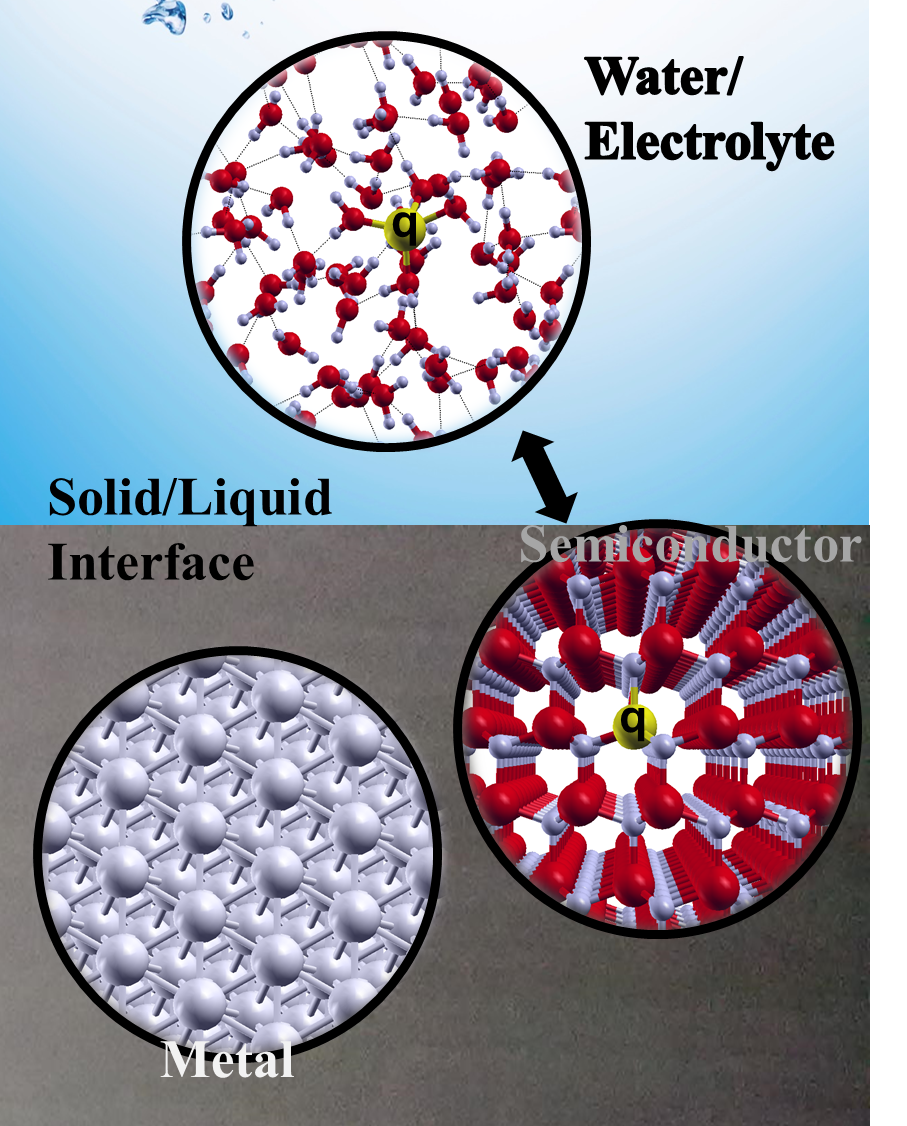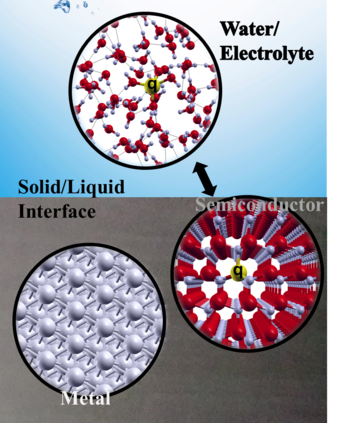Scientific scope and context

Most electrochemical processes of practical importance (e.g. water electrolysis and batteries, photo catalytic water splitting, electro catalysis, metal corrosion, etc.) take place at the interface between a solid (electrode) and a liquid (electrolyte) phase. A systematic development, improvement and optimization of any of these requires understanding of the underlying elementary processes and their interplay. Such understanding can only be achieved by addressing the relevant questions using experimental techniques and theoretical modelling as complementary tools, in analogy to what is a common and very successful practice in the realm of surface science.
Gaining insight into the microscopic processes occurring at a solid/liquid interface presents a challenge to both experimental measurements and theoretical modelling. The different classes of materials systems involved on the solid side of the interface (metals or semiconductors) may impose different requirements on investigational approaches. The electrolytes are probably most challenging regarding their dynamics, configurational diversity and tendency of aqueous electrolytes to form H-bonding networks. Electric fields evolving at the interface must be accounted for, while the involved time and length scales present a further challenge to any form of theoretical modelling based on quantum mechanical methods. Since these effects couple to and influence the relevant surface processes the whole complexity of each of the constituent phases reveals itself at the solid/liquid interface. A “brute force” simulation approach to describe such a complicated system appears neither practicable nor desirable, especially in view of the reduction to relevant mechanisms constituting one decisive contribution by theory. The development of effective modelling techniques which account for all the relevant mechanisms and aspects of a solid/liquid interface are, consequently, of the utmost importance. Equally important is the identification of experimental techniques which allow comparison to theory and make the complementary use of theoretical and experimental approaches possible.
